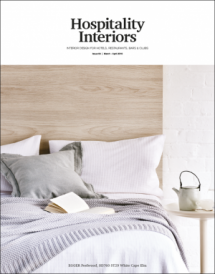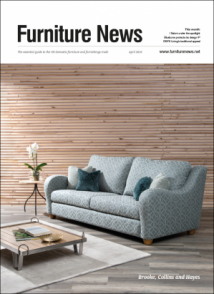
“The word ‘unprecedented’ has become synonymous with the year 2020,” says Natalie Davenport, head of marketing at Häfele UK. “But actually, that description doesn’t even scratch the surface. The last 12 months, and the ramifications of Covid-19, have arguably been the single biggest challenge this sector – and many others – have ever faced, and will hopefully ever face again.
“We consider ourselves an agile business, and one which can adapt to support our customers. So, it became obvious early into the pandemic that it was almost our duty to focus on services and products which would make it easier for manufacturers and installers to get back to business as efficiently and as soon as possible.
“We spoke to customers across the country to understand the new challenges they were facing in terms of new ways of working, costs, supply and demand and more. Then we considered how we could bring together and refine some of our own services to make a real difference to their operations during those truly difficult days of early lockdown,” says Natalie.
“In response to the pandemic and our customers’ needs, we launched Häfele Here to Help, a dedicated package of support for our industry. The programme was designed to help installers, joiners and manufacturers to increase sales and enquiries, as well as deliver projects on time and to budget, despite the financial, operational and logistical challenges presented by the pandemic.

“As well as offering price freezes on our products and extended free delivery, we also amalgamated several value-added services. Our free-of-charge Lighting Design Service, and Häfele to Order – our bespoke, made-to-order manufacturing service that allows customers to order personalised packed and assembled products for their project – were, and still are, on offer, along with a newly launched technical specification support programme for sliding door gear.
“The ultimate aim was to give installers and manufacturers all the technical elements they needed to access the right hardware, materials and specification to support customers who needed to continue to work to keep up with orders and projects, by making our processes as efficient as possible,” says Natalie.
“And it transpires this was very much welcomed by the industry, because the demand was there and it continues to grow. The lockdown forced homeowners to stay inside their properties, and the result was that many started thinking of all the things they could do to improve their spaces.
“The niggling parts of their homes, which they could live with when they weren’t confined to it 24 hours a day, were no longer niggles – they needed resolving. And with many having more disposable cash due to a decrease in commuting, socialising and travelling, the most sensible option was to reinvest it into their home.
“Order books started filling up quickly – some of our customers found themselves booked up well into 2021 as early as August 2020, and the trend hasn’t slowed since,” confirms Natalie. “Despite very gloomy initial forecasts, the home improvement industry – and kitchen sector particularly – has done better than expected. And this has been further supported by Government initiatives which have ensured the manufacturing and construction industries can continue to function, with them having acknowledged the key role both play in the rebuilding of the economy and job creation.
“What’s been an interesting movement, is the increased focus on the configuration of internal spaces. It’s no longer enough to improve the face of a room – consumers are increasingly interested in using furniture, fixtures and fittings to make spaces work harder for them, today and into the future.

“It’s partly because our homes became – without warning – much more multi-functional than they ever needed to be before, when we were told to immediately work, educate, exercise and socialise at home,” points out Natalie.
“As a result, the need for a dedicated home office space became – and still is – a pressing issue for much of the UK’s working population. The dining table was a fine temporary measure, but people quickly became tired of sore backs, disturbed video calls and a lack of distinction between the work and home environment.
“In turn, joiners saw, and are still seeing, an upsurge in requests for clever adaptations to rooms that help create the perfect office area, whatever footprint is available. Whether it’s a home that’s restricted on space, one where a worker needs a dedicated area for a day or two a week, or a larger property with a room that can be updated to create a more spacious office to work from every day, joiners are being called on to add value with really creative ideas.
“Sliding doors, for example, are being used to break up and reconfigure existing rooms to give homeowners a dedicated working area without sacrificing space elsewhere in the home. Meanwhile, multifunctional fittings such as tabletop swivel fittings – which double up as a sideboard and L-shaped workstation – are being fitted to create temporary desks which are also useful for other residents outside of working hours.

“There has also been an increased focus on storage within properties, with installers being tasked to create useful areas in formerly ‘dead space’ within homes, to prevent a build-up of clutter which comes naturally with more people being at home, for more hours of a day.
“Additionally, homeowners on a budget have been hiring installers to make small changes which spruce up a space and give it a new lease of life to improve their mental wellbeing. As well as a lick of paint, they’re changing door handles, replacing worktops, updating hinges and retrofitting lighting to their furniture to complete low-cost upgrades.
“Lighting, traditionally, has been an area that joiners steer away from, but thanks to innovation in this area – and a new willingness from tradespeople to add new strings to their bow to keep their order book full – it’s becoming easier to provide.
“This year has seen three life-changing things take place – a major climate emergency, social and economic rising and, of course, the pandemic. In combination, they have given us the ability to slow down and think about the things we want in our life. Humans are very adaptable creatures – we can change easily, but we don’t necessarily like to.”

Looking forward to next year, Natalie says: “For Häfele, a major focus in 2021 will be continuing to empower installers, joiners and manufacturers to help their customers achieve the changes they want to make in their homes.
“The pandemic has reinforced how we all live in unique circumstances – no-one’s life is the same, and therefore everyone needs different things from their properties. Products and services which enable that will continue to be in demand in 2021, especially as so many businesses have committed to permitting home working for an extended period of time – even if that goes beyond an effective Covid-19 vaccine being developed and made available across society.
“For Häfele, collaboration, being adaptive and putting our customers first has never been more important. And as the long-term impact of Covid-19 continues to emerge into 2021, we’re committed to working with manufacturers and installers to understand what we can bring the market to support them – because whether it’s technical, specification or design support, we want to be a true extension of their team.
“Just as, in the same way, consumers need joiners and installers to be part of their team – they want their homes to bring joy, and we’ll be doing everything we can to make the manufacturing industry central to that.”










